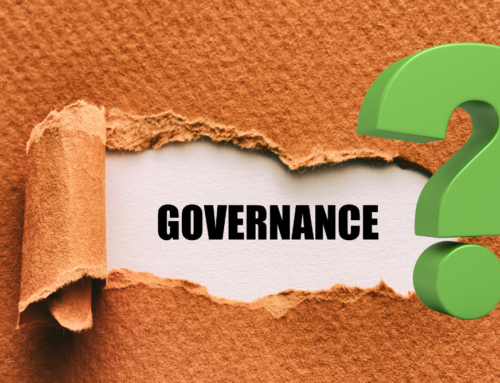Corporate Governance Failure is Common (More Common Than Most Directors Understand)
Strong governance is an important concept. In theory, it leads to organizational health and sustainability.
Unfortunately, the reality is that corporate governance fails often. Not all Directors and stakeholders understand this. Often, that’s because when corporate governance failures are reported, they sound like management failures – ‘it was the CEO’s fault’ or ‘it was management’s fault’. However, in corporate governance, management teams report to the CEO and CEO’s report to the Board. It is the Boards who are responsible. Some examples:
- Where was the Board of Tesla when its CEO was tweeting about its over-valued stock price?
- Where was the Board of Volkswagen when the Company was cheating on emissions testing?
- Where was the Board of Boeing when the Company was cutting corners to manufacture the 737 Max?
- Where was the Board of Wells Fargo when it created millions of false accounts on behalf of its customers without their consent?
- Where was the Board of Carillon when it took on new, unprofitable contracts and its debt soared to the point of corporate failure?
- Where were the Boards of Uber? Equifax? Samsung?….?
Three Factors Driving Corporate Governance Failure
When we analyze corporate governance failure, we see three common factors:
- The Board didn’t know there was a current problem
- The Board didn’t know there was risk
- The Board approved direction and incentives that made high risk worthwhile
1. The Board Didn’t Know There Was a Current Problem
A key challenge of corporate governance for any Board is knowing what it doesn’t know – the DK2 (don’t know what we don’t know) problem. It’s not an excuse – it’s part of the job.
How was the Board of Volkswagen supposed to know that its engineers were cheating on emissions tests? How were the Boards of high schools and colleges in Canada and the US supposed to know its football players were engaging in criminal hazing activities?
The answers to both questions aren’t easy – however, THAT is the challenge of corporate governance.
From whistleblower policies to common sense (it’s not like cheating or hazing are new concepts – thoughtful Boards could foresee them happening), Boards need to take proactive steps that expose and eliminate bad behaviour. In most cases we study, the problems were detectable but the Boards involved had put little or no focus on detection and prevention.
2. The Board Didn’t Identify Key Risks
A primary role of every Board is to identify and mitigate risk. Here’s why so many Boards fail at it:
- They don’t understand the market (technology?!)
- They don’t understand the product (mortgage-backed securities?!)
- They believe everything management tells them (“the iPhone is a toy”)
- They get comfortable because everything seems to be going so well (“things could not be better”)
- They don’t understand that mitigating non-financial risk is a key part of their role (talking to the Lawyers and Auditors but not the IT, marketing or HR consultants)
3. The Board Didn’t Understand They Created the Problem – incentivizing ‘goofy behaviour’
Ok, this one’s a biggie. Think large financial or stock incentives for bottom line or market share performance. Then consider what kind of behaviour that might (and does) incentivize in management:
- Taking unnecessary risks like acquisitions, large contracts, expansion into new markets, lower pricing
- Cooking the books, accumulating false assets, ‘off-balance sheet’ transactions
- Hiding problems like staff turnover, whistleblower incidents, sexual harassment
- And many others
Incentivizing goofy behaviour may the most common cause of corporate failure over the past hundred years – the Board ok’ing a direction that empowered management to make serious errors in strategy and tactics.
Corporate Governance Lessons: Three Questions Directors Should Ask Before a Board Fails
Corporate governance is a tricky task. It fails regularly. Perhaps, if the penalties for failing to prevent governance failure were tougher, more Boards would work harder and more creatively at stopping it. For those intent on preventing failure, here are three simple questions:
- What is management telling you about the business that you are accepting at face value?
- What is management being incentivized to accomplish and what are the various right and wrong ways they might be successful?
- How well does the composition of your Board reflect the risks and strategies of the organization you are governing?
Boards and individual Directors should reflect on these three questions. If the answers seem unclear…or even disturbing, then the Board is taking strong steps to avoid corporate governance failure.








Leave A Comment